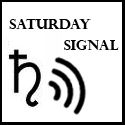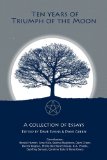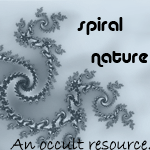 Ok, so once upon a time some jerks decided to demote Pluto to a “dwarf planet”, then they tried to amend it to a “plutoid”, because they thought it was smaller than the new thing they discovered – Eris.
Ok, so once upon a time some jerks decided to demote Pluto to a “dwarf planet”, then they tried to amend it to a “plutoid”, because they thought it was smaller than the new thing they discovered – Eris.
Turns out they were wrong and Pluto is actually larger than Eris, though it has less mass. Take that, International Astronomical Union of Jerks. I’m lookin’ at you Mike Brown – aka plutokiller.
In light of the controversy Space.com has a poll asking if Pluto’s planet status be revisited. The answer is obviously YES. Cast your votes now, people. This is serious business.
It’s been a while since we’ve done a Saturday Signal, so a lot of linkage has been piling up. For your reading pleasure I present the following signal: Continue reading »
Ok, so I received this copy of  Abraxas back in September during my visit to Treadwell’s. This review has been a long time in coming. What took so long?
Abraxas back in September during my visit to Treadwell’s. This review has been a long time in coming. What took so long?
Mostly, I wanted to do it properly. I didn’t want to rush reading bits and pieces here and there, I wanted to really sit down and savour it.
Abraxas isn’t just “An International Journal of Esoteric Studies”, this first issue is also an art book. At 290mm x 232mm it’s a large quarto, beautifully bound, and printed on high quality paper, including a handtipped sheet. Richly coloured paintings are beautifully reproduced, along with many lovely illustrations in monochrome. And then there’s the text.
This first issue focuses largely on witchcraft, and while I can’t detail every essay that appears, I would like to highlight several that I felt stood out in this already exceptional collection. Continue reading »

 Hidden Publishing has just released a new book edited by Dr Dave Evans and Dave Green, Ten Years of Triumph of the Moon
Hidden Publishing has just released a new book edited by Dr Dave Evans and Dave Green, Ten Years of Triumph of the Moon .
.
Can you believe it’s already been ten years since Ronald Hutton first published The Triumph of the Moon ?
?
Ten Years is “a collection of researches inspired by, deriving from or just celebrating the immense impact of [Hutton's] seminal book”. From the website:
The topics cover many historical periods, many academic disciplines and it provides a wealth of information of use to academic scholar and interested freelance reader alike. Includes an extended essay by Ronald Hutton on the history of such scholarship, the state of it today and some of his thoughts for the future.
I haven’t been able to locate a contributor list, but it’s suggested that there are “big names” and “those newer to the field” who collectively bring “nearly two centuries of hands-on pagan research experience between them”. Which sounds kind of impressive.
 Ok, so once upon a time some jerks decided to demote Pluto to a “dwarf planet”, then they tried to amend it to a “plutoid”, because they thought it was smaller than the new thing they discovered – Eris.
Ok, so once upon a time some jerks decided to demote Pluto to a “dwarf planet”, then they tried to amend it to a “plutoid”, because they thought it was smaller than the new thing they discovered – Eris.
 Abraxas
Abraxas 



